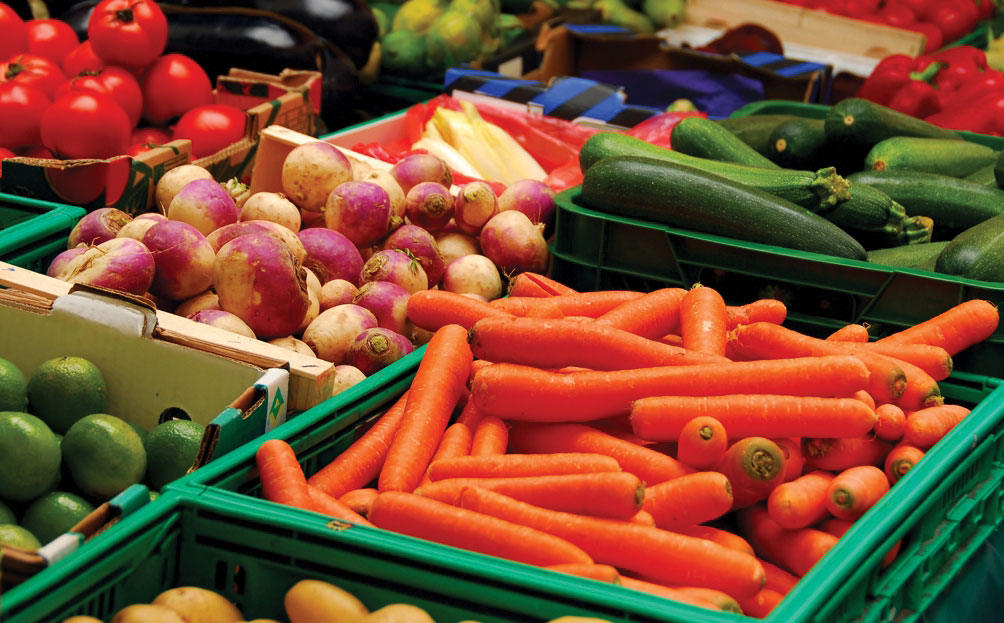Agri-food has most to lose from the wrong Brexit deal


Northern Ireland Food and Drink Association chairman Declan Billington discusses ongoing talks between his organisation and the Ulster Farmers’ Union to agree an overarching Brexit strategy for agriculture and food.
“These discussions will take account of cross border issues, trading relationships between Northern Ireland and the rest of Europe plus the support arrangements that will be available to farming in Northern Ireland, once Whitehall takes over the purse strings” he explains.
“We need a joined-up approach coming out of London where farming and food are concerned. Communicating this reality will be a priority for both industries over the coming weeks and months.”
Billington explains that both the challenges and opportunities aligned to Brexit are extensive: “They need to be resolved in a way that allows us to tap into the potential for success that exists. Successful resolution is not exclusively dependent upon the outcome of trade negotiations with Europe, but also on how we reposition our industry to service the food market both in the UK and globally.
“We see a way forward, but to achieve an outcome over the medium-term that works for the consumer and our industry requires the right combination of policies on global and European trade deals, how government intends to deliver social policy to the rural economy and the level and terms on which market access is given to third countries wishing to supply into the UK.”
Billington said that total annual sales from the Northern Ireland food and drinks processing sector amounts to £4,543 million. “With sales of £1.15 billion, the EU is the largest export market for Northern Ireland. Of this total, £700 million relates to trade with Ireland. Clearly the EU, and Ireland in particular, are important markets for agri-food,” he says.
“But post-Brexit, 28 per cent of our sales will be subject to trade arrangements that have yet to be agreed. A total of 92,000 jobs will also be put at risk, if Brexit goes wrong. This is made up of 19,000 people employed directly within the food processing sectors, 30,000 farmers and partners, plus 43,000 indirect and induced jobs.”
The NIFDA chairman explained that a commercially workable and comprehensive trade agreement between the UK and Europe must be arrived at: “This should secure a tariff free trade deal with the EU or, if not possible, strike tariffs at a level that allows industry in the UK to efficiently expand and displace EU imports.
“The agreement must also maintain existing tariffs for third country imports to ensure the current cost of policy, included in the production costs of the UK agri-food businesses, attached to third country imports. Moreover, it must allow existing arrangements with other export markets subject to EU trade agreements to continue.
“Industry should be allowed to adjust, through phasing of the new trading regime. Whilst the EU has more to lose than we do if no trade deal is arrived at by the end of March 2019, agri-food cannot be agreed alone. It needs to be part of a comprehensive trade deal.”
Billington says that a sustainable farming sector must be retained in Northern Ireland: “The last number of years have seen local farm businesses invest heavily in bespoke traceability, environmental improvement and conservation schemes, all with a clear focus on delivering improved levels of consumer confidence.
“As a result, it is critically important that all future trade deals reached between the UK and other countries around the world have these standards built-in as a matter of course. Failure to do so would not provide a level playing field for Northern Ireland’s farmers. This would be inherently unfair. Technical equivalence must become the norm.”
Billington points to the need for Northern Ireland food companies to balance the demand that exists for food within the UK with new export opportunities. He says: “We must supply the UK market with what it needs and export surpluses to other markets that value what we don’t. This is how the Danes and the Dutch approach the UK market now and it works for them. So we must flip this model in ways that work for local processers. The overall aim is to maximise the value of the entire animal and this principal works equally well for the beef, lamb, pig and poultry sectors.”
The NIFDA chairman adds: “Commonwealth and other countries will want to sell the UK cheap food and, in return, buy our manufactured goods and financial services. The food is cheap because we require standards and apply policy costs in the UK that we may or may not apply to imports. Hormone enhanced meat, fed on GM crops are the norm in many countries.

“Wage costs are also on different levels in countries outside of the EU. In regions, such as Southeast Asia and South America, a subsistence wage is the norm, not a living wage.”
Billington refers to climate change and other policy costs imposed on UK supply chains: “These are further regulatory charges that are imposed on farming and food in the UK, but not in other countries.
“So, yes, cheap food imports into the UK post-Brexit could literally undermine the entire farming and food sectors. In these circumstances, what happens to our rural towns and villages when we kill the industry on which they depend?”
Billington called for the establishment of an adequately resourced Food Export Marketing Body for Northern Ireland: “This will maintain and further exploit existing export markets and allow us develop new markets. Government must provide a framework of support to develop industry capabilities to replace imports and develop complementary export markets.
“We also need sufficient resources and devolution of the power locally to enable the agreement of equivalent standards in order to access our priority export markets.”
Billington recognises the need for agriculture in Northern Ireland to have sufficient time to adapt to the farm support changes that will follow, once Brexit becomes reality.
“We need to improve the support for productive outcomes on farms, using a balanced portfolio of policies delivering efficient output, environmental sustainability and rural society support. In turn, the authorities in the UK must recognise the pace of change that can be brought to bear within agriculture. Given the life cycle of livestock, agri-food will need interim support for 10 years to manage the transition period following major change.”
He concludes: “The challenges posed by the border on this island must be fully recognised within the final Brexit settlement. The reality is that the free movement of goods and people in both directions is now an accepted part of everyday life.
“The figures are quite staggering. Currently 25 per cent of Northern Ireland’s milk pool is exported south for processing. The figure for lambs is 36 per cent. Trade in the other direction is equally significant with almost 40 per cent of the pigs produced in the Republic of Ireland sent north for processing.
“UK and EU negotiators must be aware of these realities and the need to ensure the continuing trade requirements and the associated free movement of people that underpin the peace process. However, there is a template that can be used to make this a reality and it is to be found in the way the European Union deals with the island of Cyprus.”





